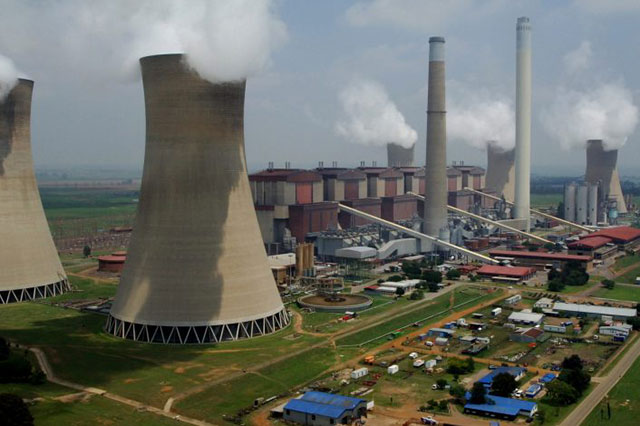Cape Town – The chairperson of the National Rationalised Specifications Association of South Africa (NRS), Vally Padayachee, has warned that although Eskom’s load shedding stages have dropped to stage 3, the levels may not remain low, especially during the winter months of June, July, and August.
He said this, as he briefed the National Press Club in Pretoria on Thursday.
He highlighted the risk of a national blackout but mentioned that the probability is low due to operating protocols and protection systems in place.
However, he cautioned that if a blackout were to occur, it would have severe impacts on critical sectors such as safety, water supply, telecommunications, and national security.
“However, should a national blackout materialise, the impact on the country would be severe, impacting critical sectors of society and the economy, including personal and occupational safety, water supply and sewage systems, telecommunications and transport infrastructure, and even national security,” IOL quoted Padayachee as saying.
He also mentioned the possibility of higher levels of load shedding beyond stage 6 or 8, considering the poor state of the Eskom grid.
“Eskom may be forced to migrate to higher levels of load shedding beyond stage 6, let alone beyond stage 8, given the generally poor state of the Eskom grid, especially Eskom generation,” he said.
Chair of the management committee of the NRSA SA Vally Padayachee says SA is not out of the woods yet with regards to load shedding. He says there’s no guarantee we can’t go beyond stage 6 with an intense July winter month around the corner.
Watch: https://t.co/U1sZh3Ycdf pic.twitter.com/aQC9L7SaKO
— Newzroom Afrika (@Newzroom405) June 21, 2023
Padayachee, however, reassured the public that the country is unlikely to experience a total electrical blackout or a national grid collapse, even during higher stages of load shedding.
“To give assurance to the media and the public that migrating into a blackout situation and a potential national grid collapse though technically is not impossible but it is virtually not probable at all.
“After all … it has not happened in South Africa to date in 100 years of Eskom’s existence … we have never had a total blackout in the country. So hence we can give you the assurance that we’re still far away from a blackout let alone a grid collapse,” he said.
He continued: “It’s caused by an unexpected and sudden event in the transmission network that cascades and eventually results in generators protecting themselves and separating from the network.
“When we get to the situation where the supply cannot meet the demand, the system automatically takes over and it would get into a blackout situation. There are a number of interventions for that which prevent that from happening. Blackouts are not only caused by a lack of generation capacity – it could be caused by other [factors].”
Padayachee said even though a system blackout is highly unlikely, the NRS with NERSA is developing a document – NRS 048-9 Edition 3 – which will legally provide for load shedding up to Stage 16 – not in anticipation but to allow the power utility to prepare adequately should it be needed.
The document went through rigorous and extensive consultations with over 100 comments from organisations and people.
“As the NRS we wish to reiterate and assure the public the need to plan for a potential load shedding Stage 8 up to and including load shedding at possible elevated levels and the unlikely event up to Stage 16 … is primarily a proactive measure as a responsible organisation to enable or empower the various utilities – especially Eskom – to be in a maximum state of readiness and preparedness to respond in the event of and the need to, hopefully not, institute load shedding beyond Stage 8.
“It does not mean that the reference to Stage 16 in the NRS 048-9 Edition 3 is now a fait accompli that the electricity utilities are planning to migrate to Stage 16 load shedding. It is definitely not the case,” he said
Follow African Insider on Facebook, Twitter and Instagram
Picture: Twitter/@SAgovnews
For more African news, visit Africaninsider.com
Compiled by Betha Madhomu


